Disclaimer: In Real Life is a platform for everyday people to share their experiences and voices. All articles are personal stories and do not necessarily echo In Real Life’s sentiments.
Content warning for sexual discussions
Nana started writing dirty poetry in Bahasa Malaysia to prove that her mother tongue can actually be sexy
“It’s a beautiful language!” she exclaimed. “Do you know how sexy BM can be?”
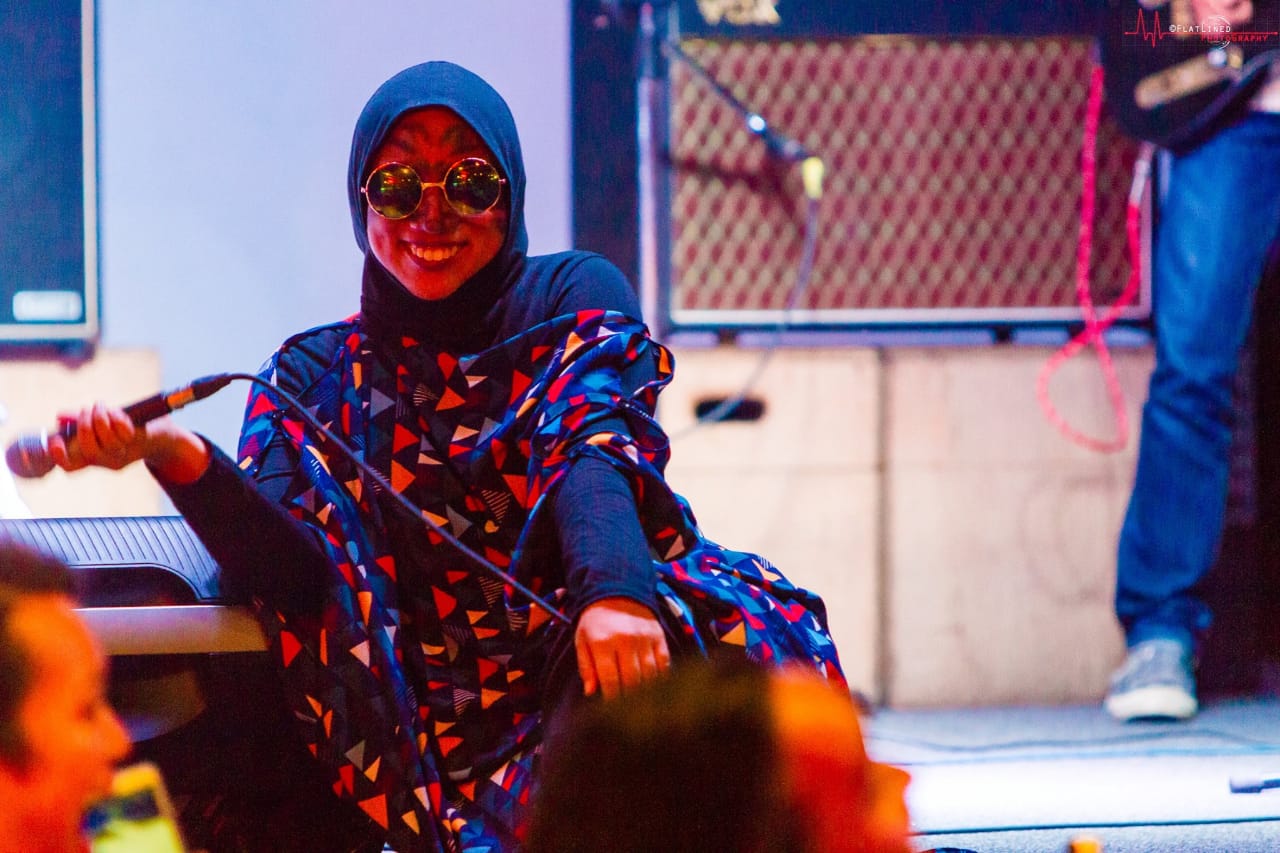 Source: Flatlined Photography
Source: Flatlined PhotographyShe told me about how it all started when people on Twitter were making fun of what dirty talk looked like in BM.
“I wanted to challenge that mindset of BM being stuffy, or it having to be bahasa baku for poetry.” She talked about how literal translation to BM doesn’t work – BM is a very visual language.
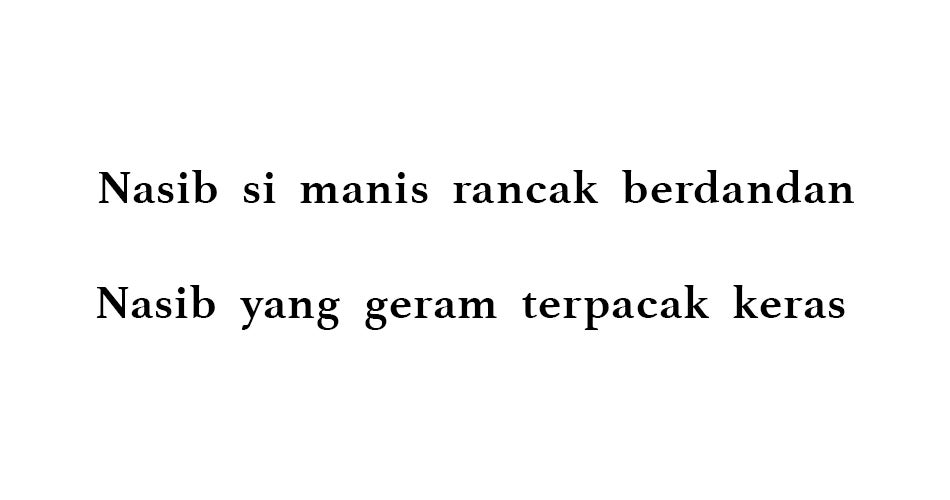
“I mean, let’s take ‘cekik aku abah’ as a translation for ‘choke me daddy’,” she said. “I’d love to translate it to something more like: tangkap desahanku, kian perlahan dalam tanganmu.”
(catch my breath, as it softens in your hands)
I have to admit that that sounds a whole lot more sexy than ‘cekik aku abah’.
She also talks about words in BM. “Take ‘basah’ for example,” she goes on to say. “It doesn’t just mean wet, it can mean moist or dripping… Listen to the word. The way the ‘b’ explodes in your mouth, how it moves through the sensual ‘s’, and then the soft ‘ah’ at the end. It’s so sexy!”
There’s a lot of visual imagery in her poetry. Pisang, for example, is used to break stereotypes.
“In Malay culture, and I think in general, the banana is considered very phallic,” she said. “But I wanted to focus on its more feminine side – the trunk.”
We talked about how the banana tree is mainly associated with female entities in folklore, like the pontianak.
“Why not explore that femininity?”
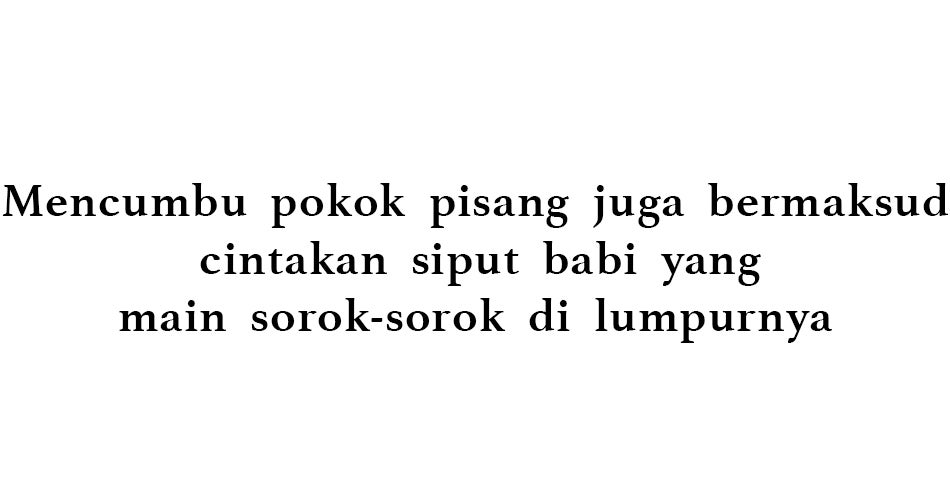
She also attributes her strong use of visual imagery to her background as a spoken word poet. “Your first line in spoken word poetry has to have very vivid imagery: you want to capture your audience’s attention. You can’t use something cliché, like ‘once upon a time’. Hmmm, I mean, you could but you need to make people care about what you’re going to say.”
Her poetry isn’t necessarily intended for spoken word, but when she reads her poetry aloud she feels that she owes her audience a performance.
Nana’s performances tend to be quite conceptual as a rule.
She not only speaks out visual imagery, but she also gives her viewers something to watch.
She managed to narrow them down to 2 of her favourites:
The first one was about gender dysphoria, and involved her husband as an accomplice. She described to me how she used him to represent masculinity and how she pushed him down to the ground during the performance. He was holding a camera, and took a picture of the audience looking down upon him. The picture was then projected: creating a scene of the audience looking down on themselves.
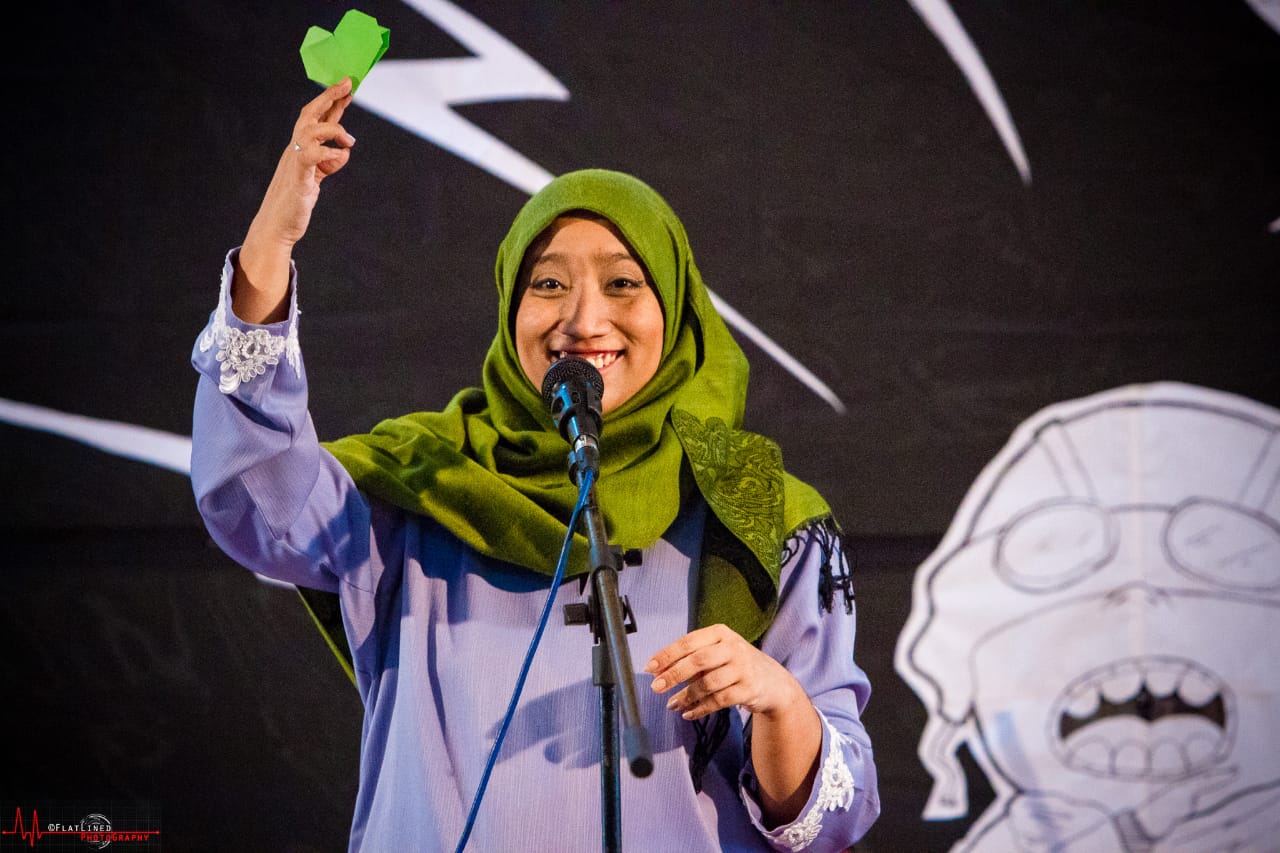
Source: flatlined photography
Another favourite poem was performed during a life art modelling session, in which she posed for sketchers and painters to practise their art. During certain set intervals, models have to change their poses. During each change in pose, she recited a line from her poem titled “Life Art Model”. “Original title, I know,” she said laughingly. “It was the first time I was ever applauded after a life art modelling session!”
It’s important for Malaysians to support their local creatives
It gives us a chance to see ourselves and our cultures more truly represented in art.
When asked about when she started writing, Nana revealed that it actually began since childhood.
The first time she was published happened in primary school. They were supposed to write poems on their Mother’s Day cards for school. She had written a poem using “you are my sunshine”, replacing “sunshine” with “mother”. It was published on the school’s bulletin board.
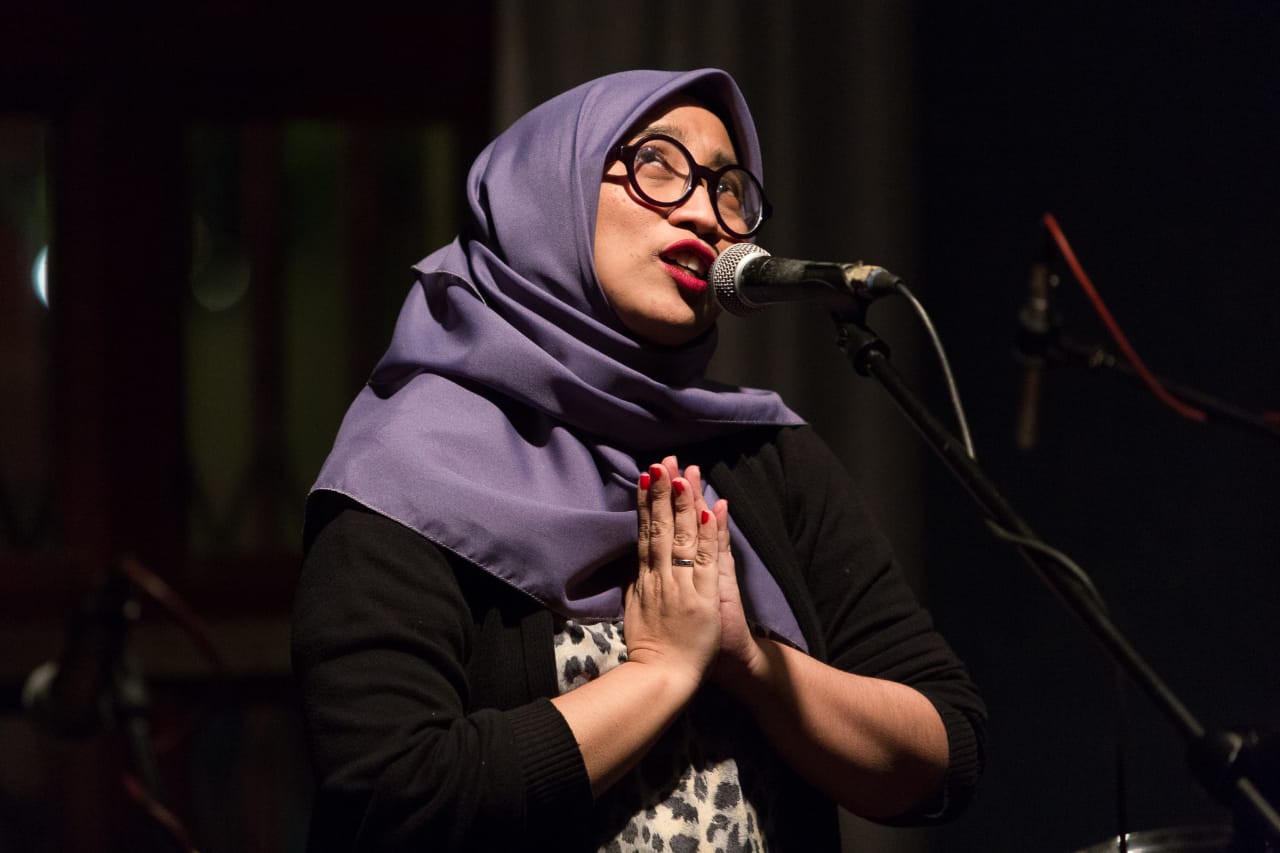
Source: flatlined photography
Nana has a boisterous and flamboyant personality, unashamed of being herself. It is reflected in her poetry.
Nana believes that it is hard to write good poetry without 2 things: life experiences and empathy.
“Other than writing skills, of course,” she clarified. But poetry requires good observation, in her opinion, and life experiences and empathy will help to meld observations into analogies – evoking a sense of wonder in a world full of the mundane.
“Observe the towel you use to dry your body after a shower,” she said. “What life experiences can you use to create a good analogy? It’s so cliché to link it to being discarded after use, so you have to think about doing something different from what everyone else is doing.”
She describes it as a need to relate one thing to another, and empathy helps her in this greatly.
Poetry is so different from writing in that it seeks to create maximum impact with the minimum number of words (to me, at least).
Although it is an art form that intimidates me, I’m glad that poets exist to remind us of the beauty of language and the things we can do with words.
It’s not something just anyone can do.
Nana can be followed on Instagram, Twitter and Facebook.
You can check out more of her work on itchio.io.
For more stories like this, read: I’m An MMA Fighter And We Saved A Lady While Our House Was Being Destroyed By The Flood, 5 M’sian Dance Crews Are Finalists for This International Competition, Here’s What You Need to Know, and The Humbling Story of an Elderly Malaysian Couple Who Started Selling Nasi Lemak from the Car.
More from Real People
‘A RM100 fee cost a company 5 years of revenue’ shares M’sian
This story is about a Malaysian who learned that bureaucracy can be defeated simply by not arguing with it.A billing …
‘I quiet-quit, upskilled, and tripled my salary,’ shares M’sian engineer
This story is about a Malaysian who learned that loyalty without leverage leads nowhere in the corporate world.After years of …
‘I did everything right, and it still wasn’t enough’ shares M’sian graduate
This story is about a Malaysian graduate navigating big dreams in a job market where a degree no longer guarantees …















